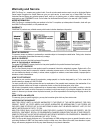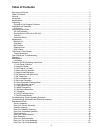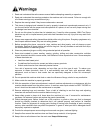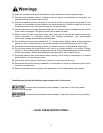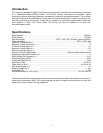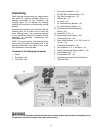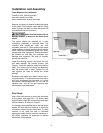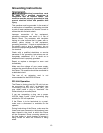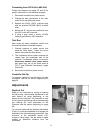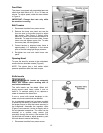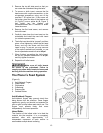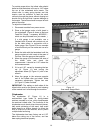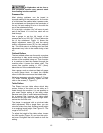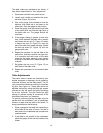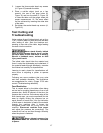
10
Grounding Instructions
Electrical connections must
be made by a qualified electrician in
compliance with all relevant codes. This
machine must be properly grounded to help
prevent electrical shock and possible fatal
injury.
This machine must be grounded. In the event of
a malfunction or breakdown, grounding provides
a path of least resistance for electric current to
reduce the risk of electric shock.
Improper connection of the equipment-
grounding conductor can result in a risk of
electric shock. The conductor with insulation
having an outer surface that is green with or
without yellow stripes, is the equipment-
grounding conductor. If repair or replacement of
the electric cord or plug is necessary, do not
connect the equipment-grounding conductor to a
live terminal.
Check with a qualified electrician or service
personnel if the grounding instructions are not
completely understood, or if in doubt as to
whether the tool is properly grounded.
Repair or replace a damaged or worn cord
immediately.
Make sure the voltage of your power supply
matches the specifications on the motor plate of
the Planer. The machine should be connected to
a dedicated circuit.
The use of an extension cord is not
recommended for the WP2510 Planer.
230 Volt Operation
The Planer is factory wired for 230 volt, but can
be converted to 460 volt if so desired (see
“Converting From 230 Volt to 460 Volt”). You
may either install a plug or “hard-wire” the
Planer directly to a control panel.
If you are connecting a plug, use a proper
UL/CSA listed 3-pole, 4-wire grounding plug
suitable for 230 volt operation.
If the Planer is to be hard-wired to a panel,
make sure a disconnect is available for the
operator.
During hard-wiring of the Planer, make sure the
fuses have been removed or the breakers have
been tripped in the circuit to which the Planer
will be connected. Place a warning placard on
the fuse holder or circuit breaker to prevent it
being turned on while the machine is being
wired.



